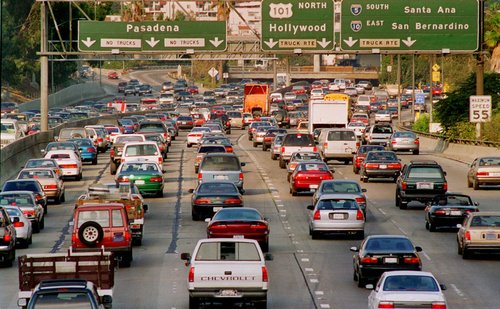Most
people in this city have ridden the bus at some point or another. For
some people, the bus is their main mode of transportation. Because of
this, it was jarring to find out that until recently some bus drivers
were operating on little to no sleep. Due to TriMet’s long standing
hiring freeze, drivers have had the opportunity to snag overtime on a
regular basis. Without regulations to stop them, some drivers were
working between 18-22 hours each day. A recently retired driver
admitted that "exhaustion has become part of the culture, but TriMet
can't run that place without drivers who are willing to rack up some big
overtime". In addition to the hiring freeze, this is also partially
due to a high daily absenteeism rate, which makes extra shifts available
for many drivers.
The
fatigue-fighting agreement that was reached in early February addressed
this issue. The agreement, which requires bus drivers to take 10 hours
off in between shifts, was reached after the Oregonian concluded its
investigation of TriMet driver fatigue. Rose, the Oregonian reporter,
asserts that during the investigation TriMet’s managerial attitudes
toward the problem shifted. In August officials made no indication that
driver fatigue would be a contract concern. “At the end of November,
however, they said new limits on work hours for bus drivers would be a
priority in upcoming contract negotiations with the union”. This may
have had something to do with the 21 documented incidents of drivers
“nodding-off” while operating buses and light rail that the Oregonian
managed to dig up. In 2011, ODOT took the initiative by holding TriMet
to legal requirements applicable to light rail operators’ weekly hours.
These regulations, however, do not apply to bus operators.
The
regulations set in the fatigue-fighting agreement are a start, but it
seems that they may just be a temporary solution. Until TriMet is in a
position that allows them to hire more drivers to fill schedules, some
bus drivers will still be working overtime on a regular basis. This
rule bending might be preferable to simply cutting service on any given
day, but not at the risk of riders’ lives. This issue may only be one
on a list of problems caused by TriMet’s financial straits, but safety
seems like it should be pretty high on the list.
Thanks to CJ Doxsee for editing this.
Links to Articles:
http://www.oregonlive.com/roadreport/index.ssf/2013/02/trimet_driver_fatigue_agency_u.html
This is a very important issue for any city where bus transportation plays an integral part of many commuters' lives. Over all ridership might be down but there is a need of those who do not own cars, to be able to get around town. I am one of those people who rides busses almost everyday. Riding particular lines and at consistent times of the day, I have been fortunate to know several of the drivers operating the bus. What I have also experienced is when one of them has been so tired, they missed a turn or drove past a group of riders. This is a real issue of safety not only for those on the bus, driving the bus but also anyone that shares the road with over worker city bus drivers. On top of the long hours, drivers have to deal with a very high level of interaction with commuters that this too can add to the level of exhaustion. It is not easy driving through downtown Portland and adding characters into the mix can real work a driver. When there is not enough money to hire employees, a business is in a situation where they must utilize the man power that they have. And to a certain extent, there is an incentive from the employees' side to rack up some hours, over-time means money. but shouldn't safety and fair working conditions take precedence over working overtime? If more workers' were getting paid a fair wage, there would not be people will to work more hours over spending time with friends and family.
ReplyDeleteThere is no way of getting around the fact that departments of transportation in most places need funding. In order to meet the demand for public transportation fairly and safely, it will take a change in prioritization. I really think in a situation like this, drivers and riders have a unique opportunity to band together in order to secure fair wage and safe working hours. Riders are voters and consumers and have the capacity to help influence policy change, or at the very least help enforce agreements that regulate hours and wages. Thank you for the post, it was well-written and informative!
Yes, I thought this was informative as well. I never considered that fatigue was such a rampant problem. Your post inspired me to post about Trimet's absenteeism, which promotes a "culture of exhaustion" as people are making up those open hours. I mention in the post that Chicago had a huge positive turnaround with its absentee rate by strictly enforcing its own policies. As you wrote, Trimet has just begun to really ink out strict, clear policies that hopefully will make everyone's public transit experience safer and more reliable. Thanks for bringing this issue forward.
ReplyDeleteI was really interested in this post. I have seen the ads Trimet employees take out in the Mercury etc, but never knew the problem was this bad. As someone who rides the bus, I find this very concerning. I’m curious to know how Tri-met plans to work around scheduling. Could this mean fewer routes? limited availability?
ReplyDelete